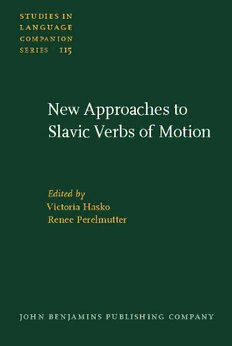
New Approaches to Slavic Verbs of Motion PDF
407 Pages·2010·1.783 MB·Studies in Language Companion Series 115
Most books are stored in the elastic cloud where traffic is expensive. For this reason, we have a limit on daily download.
Preview New Approaches to Slavic Verbs of Motion
Description:
This volume unifies a wide breadth of interdisciplinary studies examining the expression of motion in Slavic languages. The contributors to the volume have joined in the discussion of Slavic motion talk from diachronic, typological, comparative, cognitive, and acquisitional perspectives with a particular focus on verbs of motion, the nuclei of the lexicalization patterns for encoding motion. Motion verbs are notorious among Slavic linguists for their baffling idiosyncratic behavior in their lexical, semantic, syntactical, and aspectual characteristics. The collaborative effort of this volume is aimed both at highlighting and accounting for the unique properties of Slavic verbs of motion and at situating Slavic languages within the larger framework of typological research investigating cross-linguistic encoding of the motion domain. Due to the multiplicity of approaches to the linguistic analysis the collection offers, it will suitably complement courses and programs of study focusing on Slavic linguistics as well as typology, diachronic and comparative linguistics, semantics, and second language acquisition.
See more
The list of books you might like
Most books are stored in the elastic cloud where traffic is expensive. For this reason, we have a limit on daily download.
